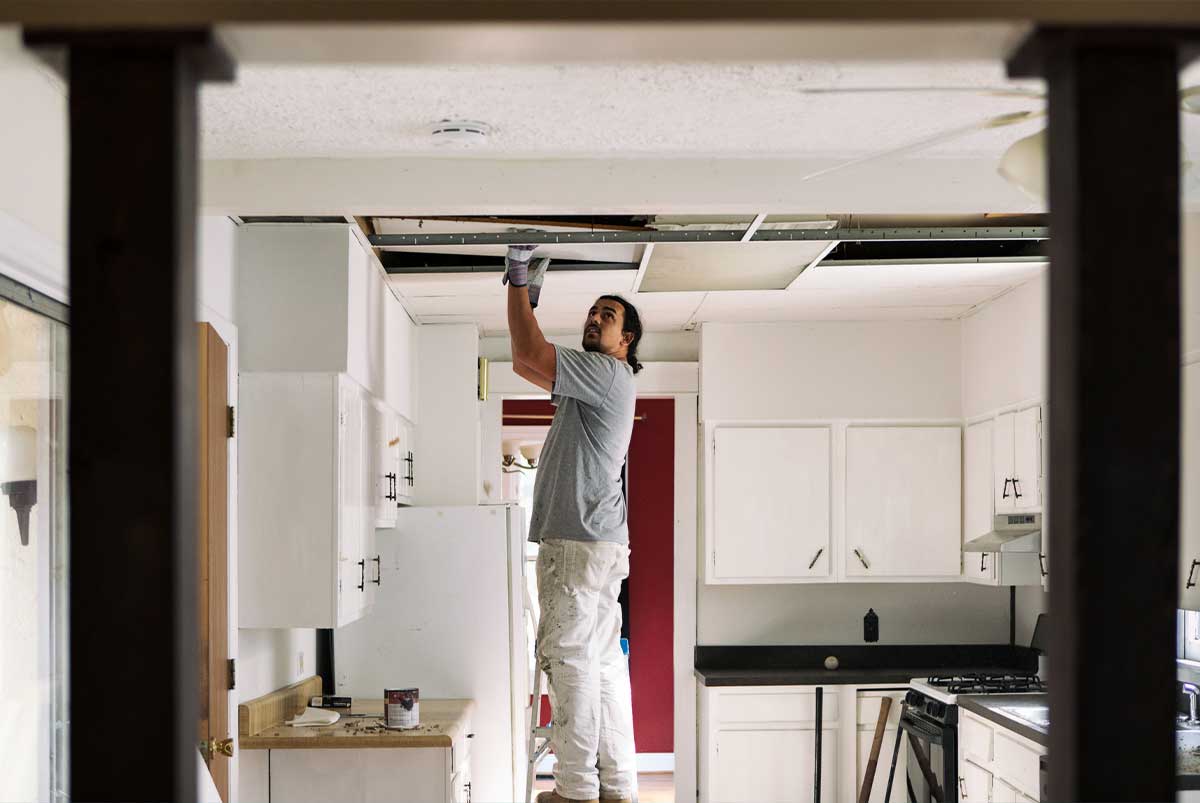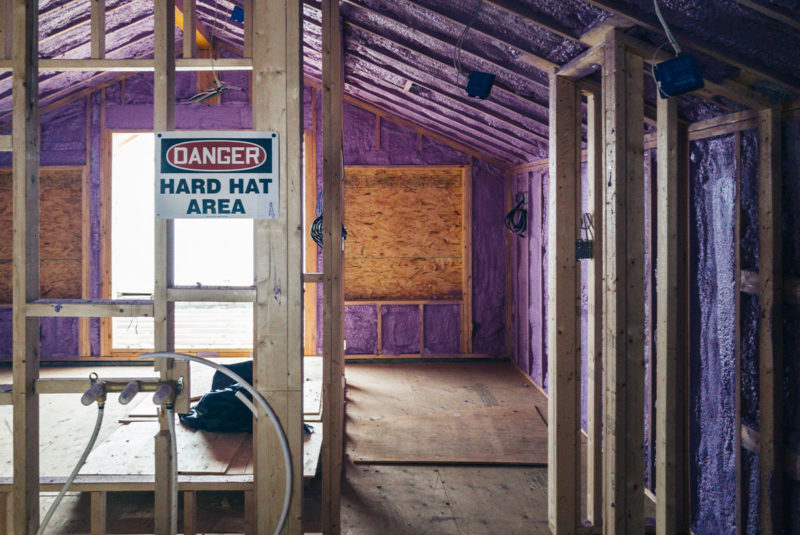Explore your mortgage options
Maybe you’re planning to grow your family. Or maybe you just need the extra room. Whatever the reason, a home addition can potentially add a lot of value to your home. It can also cost a lot of money.
We’ll take you through some of the most common financing options for your home addition. You’ll have all the tools you need to build the right financing plan for you.
Need Funds for Home Improvements?
Apply for a home improvement loan from Rocket LoansSM and start planning your next renovation project.
Checking your options won’t affect your credit score.
How To Finance a Home Addition
If you want to finance a home addition, one of the first questions you need to answer is whether or not you plan to tap into your home equity.
Loans involving home equity generally take longer to close than other loan types (like a personal loan), and you have to put the home up as collateral. However, you’ll be able to borrow higher amounts with these options, allowing you to tackle more elaborate additions.
Financing a home addition with equity
Here are the best ways to finance a home addition by tapping into your equity.
Home equity line of credit
A home equity line of credit (HELOC) can be well-suited for home renovation projects where the final cost isn’t known upfront, and where parts of the project need to be funded as they occur. That’s because a HELOC allows you to borrow what you need as you need it. This is done during the HELOC’s draw period (usually 10 years). The draw period is a time frame, set by a lender, you can withdraw from your available credit.
The loan is then repaid during the repayment period, usually 20 years. In some circumstances, the interest paid can be tax-deductible.
It can take 2 – 6 weeks from application to approval to get a HELOC.
Home equity loan
With a home equity loan, the lender gives you a lump sum which you pay back, plus interest, over the term of the loan. Home equity loans are generally fixed-interest loans, so the rate you receive at the start of the loan remains the same until the loan is repaid. These are installment loans with a fixed monthly payment.
A home equity loan can be great for funding a home addition in circumstances where the costs of the project are known upfront. It’s also nice to have a predictable rate and monthly payment.
Like a HELOC, approval for a home equity loan will take 2 – 6 weeks and the interest paid on a home equity loan could be tax-deductible.
Cash-out refinance
A cash-out refinance (or cash-out refi) pays off your existing mortgage and gives you back some of your home’s equity as cash. You also receive a new mortgage in the process. The loan requirements tend to be the same as for a HELOC or a home equity loan. But for a cash-out refinance, you’ll need to have at least 20% equity in your home.
Depending on the lender, you can typically cash out up to 80% of your equity. And because you’re getting a new mortgage, the process is generally the same as with any mortgage and you will need to pay closing costs.
Financing a home addition without equity
It can take years to build up equity in your home, or maybe you don’t want to use it on a home addition. Whatever the case, don’t worry. There are other ways to finance your home renovation.
Personal loan
An unsecured personal loan can be an option for people looking to finance their home additions quickly. “Unsecured” means the loan isn’t backed by collateral. Because of this, a personal loan tends to have a higher interest rate than a home equity loan, but a lower interest rate than a credit card.
Many times, what a lender might call a home improvement loan is just a personal loan used for home renovations.
Personal loans are usually fixed-interest installment loans with a repayment term of 1 – 7 years. To qualify, lenders will review your loan application, paying particular attention to your credit score and debt-to-income (DTI) ratio.
What’s great about a personal loan is the quick turnaround time. You can usually get a personal loan within a few business days, and some lenders are even faster.
Get Cash Fast
Rocket LoansSM offers same-day funding for personal loans. Get prequalified and get the cash you need, fast.
Credit card
Sometimes, people find it easy and convenient to fund a home addition using a credit card or two. This can be a good idea if you have a credit card with an introductory interest rate lower than the rates on available loans, for example, a 0% intro APR card.
Note that you’ll need to pay off what you’ve charged to your credit card before the introductory period is over. Once the interest rate changes, the new rate could be steep, sometimes 20% or higher.
Be sure to make all your credit card payments on time and in full. Otherwise, your credit score can take a hit, and you could rack up late payment penalties as well.
FHA 203k loan
The federal government offers some loans, such as the FHA 203(k) loan, that are geared toward home buyers looking to purchase a fixer-upper or home needing an addition. These loans combine the mortgage and home renovation loan into one loan.
When Should I Finance a Home Addition?
The average price of an addition is around $22,209 – $81,697.[1] The price depends on the type of addition, build complexity, cost of materials and features included.
Deciding whether or not to put an addition on your home comes down to why you want it, how it will affect your life (both during and after it is built) and how you’ll pay for it.
Another big factor is how long you plan to live with the addition. In general, it’s best to try and get some use out of an addition before you sell. That is, unless you’re looking to flip your house and the addition will be built to add value.
Consider these pros and cons of building an addition:
PROS of building an addition👍
One of the obvious reasons for doing an addition. The benefits of extra square footage are limited only by your imagination.
Moving can be difficult, and finding another property to suit your needs can be nearly impossible, especially in a seller’s market. A big home improvement, like an addition, can give you that new-zip-code feeling without ever leaving your neighborhood.
Increasing your square footage can have a positive effect on your home’s value. Simply put, a home with a quality addition, especially in a desirable neighborhood, will probably command a higher resale price than without.
CONS of building an addition👎
If additions make homeowners feel like they’re living in a construction zone, it’s because they are. Besides the dust and noise during home improvement, your home could temporarily lose some of its functionality. For instance, entryways may be inaccessible, the kitchen or bathroom unusable and some or all of the utilities may have been shut off.
If your yard is small to begin with, an addition that increases your home’s footprint will make it smaller. It might also put you too close to the neighbor or necessitate removing a beloved tree or garden.
Not everyone wants home improvements like an indoor bowling alley or home theater. And if the addition doesn’t aesthetically fit with the rest of the house, has shoddy workmanship or was not built to code, it could make your home worth less than it was before the addition.
Final Thoughts on How To Finance a Home Addition
The best loan for you will depend on your financial circumstances. But regardless of the route you take, be sure to use reputable home improvement contractors and lenders, and go over your loan contract thoroughly.
Consider consulting with a financial professional about how best to finance your project, and a real estate agent to ensure the best return on your investment.
Home Improvement Is Worth It
Prequalify for a personal loan from $2,000 to $45,000 from Rocket LoansSM and make your dream home a reality.
The Short Version
- If you plan to use your home equity for the addition, popular financing options are home equity loans, home equity lines of credit (HELOC) or a cash-out refinance
- If you don’t have the equity built up or don’t want to use it, consider a personal loan, credit card or FHA 203k loan
- The average price of an addition is around $22,209 - $81,697 [1]
Home Advisor. “How Much Does a Home Addition Cost?” Retrieved January 2024 from https://www.homeadvisor.com/cost/additions-and-remodels/build-an-addition/




